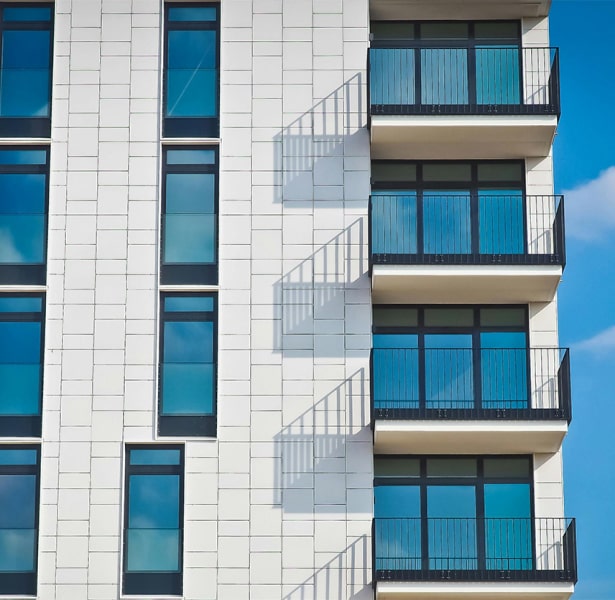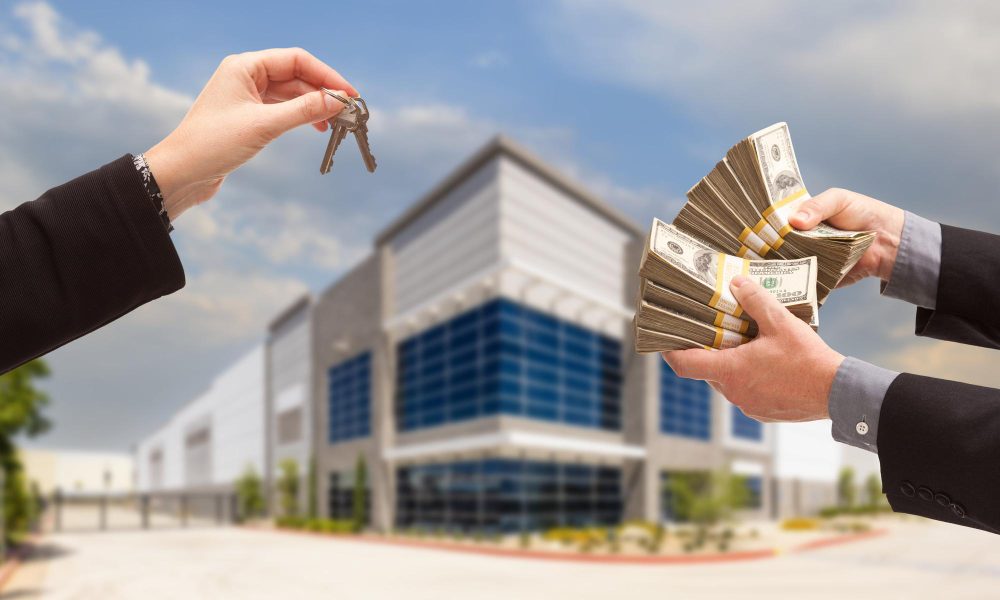Businesses around the Netherlands are reexamining the role of real estate on their balance sheets in the current tighter economic environment. Sale and leaseback agreements have become a popular strategy for many Dutch occupiers, particularly those in the office, industrial, logistics, and healthcare sectors, to free up funds and reinvest them in their core businesses.
This essay examines why this model is becoming more popular in the Netherlands, how businesses there are using it to maximize capital, and what occupiers should consider before starting a deal of this kind.


What Is a Sale & Leaseback?
One financial tactic is a sale and leaseback, in which a business sells its owned property and concurrently signs a long-term lease with the purchaser. This gives the occupier instant access to the market worth of the property in liquid form while enabling them to stay in the same place and carry on with business as usual.
This strategy provides both financial flexibility and operational continuity for real estate-rich companies that don’t require building ownership to function well.
In a world brimming with opportunities, it’s disheartening to know that not everyone has equal access to education. Education is the cornerstone of progress and personal growth, yet countless communities around the globe struggle to provide quality learning experiences for their children. This blog post delves into the profound significance of supporting education initiatives in underserved communities and how they can pave the way for a brighter future.
Why the Netherlands Is Seeing This Trend
The Dutch market is seeing an increase in sale and leaseback agreements due to a number of factors:
1. The Need for Liquidity in a Wary Economy
A lot of Dutch companies are looking for methods to improve their cash flow without taking on more debt. Capital is provided through sale and leaseback agreements without reducing ownership or raising financial leverage.
2. Increasing Demand from Investors
Income-producing real estate in the Netherlands is being actively pursued by institutional and international investors, particularly in office clusters, urban industrial zones, and prime logistics corridors. Long-term, consistent returns are provided by a leaseback agreement with a solid tenant.
3. Positive Valuations of Assets
The demand for strategically positioned commercial real estate is still high, notwithstanding some macroeconomic instability, which supports stable valuations. Occupiers can sell for more money by taking advantage of the existing pricing.
4. Pay Attention to Core Functions
Instead of investing in tangible assets, businesses are increasingly choosing to focus their resources on their core operations, whether those activities are manufacturing, logistics, healthcare, or technology.
Key Benefits for Dutch Occupiers
1. Open Capital
Real estate monetization allows occupiers to raise large sums of money, frequently millions of euros, without having to take out loans or issue new shares. This money can be utilized for:
- Finance the growth of your company.
- Boost operations and technology
- Increase the efficiency of energy use
- Cut back on interest or debt payments
2. Preserve the Stability of Operations
The transfer from owner to tenant is smooth when a pre-negotiated lease is in place. Customers, employees, and logistics are all unaffected.
3. Boost Financial Indicators
A company’s return on assets (ROA), capital employed, and other financial parameters that are examined by lenders, investors, and shareholders can all be improved by sales and leasebacks.
4. Reduced Risk of Asset Exposure
Businesses are less vulnerable to future changes in the real estate market, upkeep obligations, and depreciation when they transform a fixed asset into capital.
Sectors Driving Sale & Leasebacks in the Netherlands
The appetite for sale and leaseback transactions is particularly strong in the following Dutch sectors:
1. Logistics and Warehousing
With e-commerce continuing to surge, logistics operators are monetizing distribution hubs in cities like Rotterdam, Eindhoven, and Tilburg, freeing capital to scale operations and invest in automation.
2. Light and Industrial Manufacturing
Large industrial companies are adopting leasebacks to satisfy ESG goals, upgrade facilities, and transition to renewable energy sources without taking out loans.
3. Offices of corporations
In order to maintain flexibility and prestige, businesses embracing hybrid work arrangements are leasing out their owned offices while retaining high-value spaces.
4. Medical and Healthcare Facilities
Particularly in the expanding Dutch suburbs, private clinics and health facilities are using the value of real estate to finance technological advancements and geographic growth.
5. Developers of Residential Real Estate
In order to raise money without delaying construction, sale and leaseback options are being investigated in mixed-use buildings, particularly in build-to-rent or senior housing projects.
The Viewpoint of the Investor: Why It’s Beneficial
Because they combine the stability of long-term leases with tenants who are frequently operationally committed in the property, sale and leasebacks are seen as appealing by investors.
Steady, reliable revenue from reputable tenants
- Low chance of vacancy since the tenant has incentives for business continuity
- In a market where yield compression is affecting traditional rental assets, attractive yields
- Potential for future asset repositioning or redevelopment to increase value
Dutch real estate is viewed by investors as low-risk and long-term high-performing, particularly in industrial and core logistical zones. Additionally, by combining tenancy and real estate into a single transaction, the sale and leaseback approach lowers acquisition friction.
Occupiers’ Strategic Considerations
Although leasebacks and sales have many benefits, there isn’t a one-size-fits-all approach. Dutch occupants should consider the following important factors:
- Alignment of Lease Structure
Make sure your company plan aligns with the leaseback terms, including length, escalation, and break options. If you’re thinking about downsizing or moving in the future, flexibility is important.
- The chance The Price of Appreciation
The investor owns the asset’s possible future value when it is sold. This might be important in rapidly expanding places like The Hague, Amsterdam-Zuidoost, or Utrecht.
- Selecting the Appropriate Partner
Collaborate with firms or real estate advisors who are knowledgeable about the local Dutch real estate market as well as your industry. Partnership is just as important in sale and leasebacks as paperwork.
Why Now? Timing Is Everything
In contrast to many of its European rivals, the Dutch real estate market is still very strong. 2025 is a great time to assess sale and leaseback options because of the combination of robust investor demand, solid lease structures, and driven occupiers.
Sale and leasebacks are becoming a common capital strategy rather than a specialty tactic, as real estate values in important logistics and industrial zones remain stable and financial options for many enterprises become more limited.
A sale and leaseback is more than just a financial move for Dutch occupiers, particularly those in capital-intensive industries; it’s a strategic unlock. Businesses can focus on what really matters—growth, innovation, and performance—by turning owned assets into cash while maintaining operational control.
At the same time, investors continue to benefit from secure, inflation-protected income and long-term tenant relationships—creating a true win-win structure in the evolving Dutch commercial real estate landscape.
Are you considering your alternatives for a sale and leaseback in the Netherlands?
Our specialty at RENEW Real Estate is creating effective, one-of-a-kind deals that complement asset performance and corporate objectives. Our staff guarantees a smooth transition that adds long-term value, from finding the ideal investor to negotiating the best lease terms.


